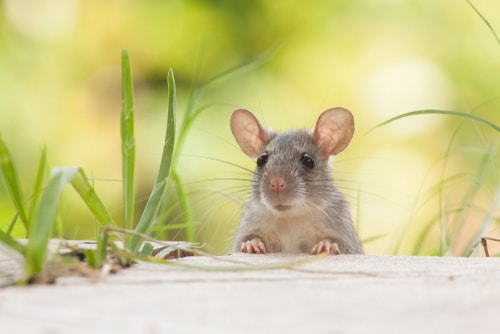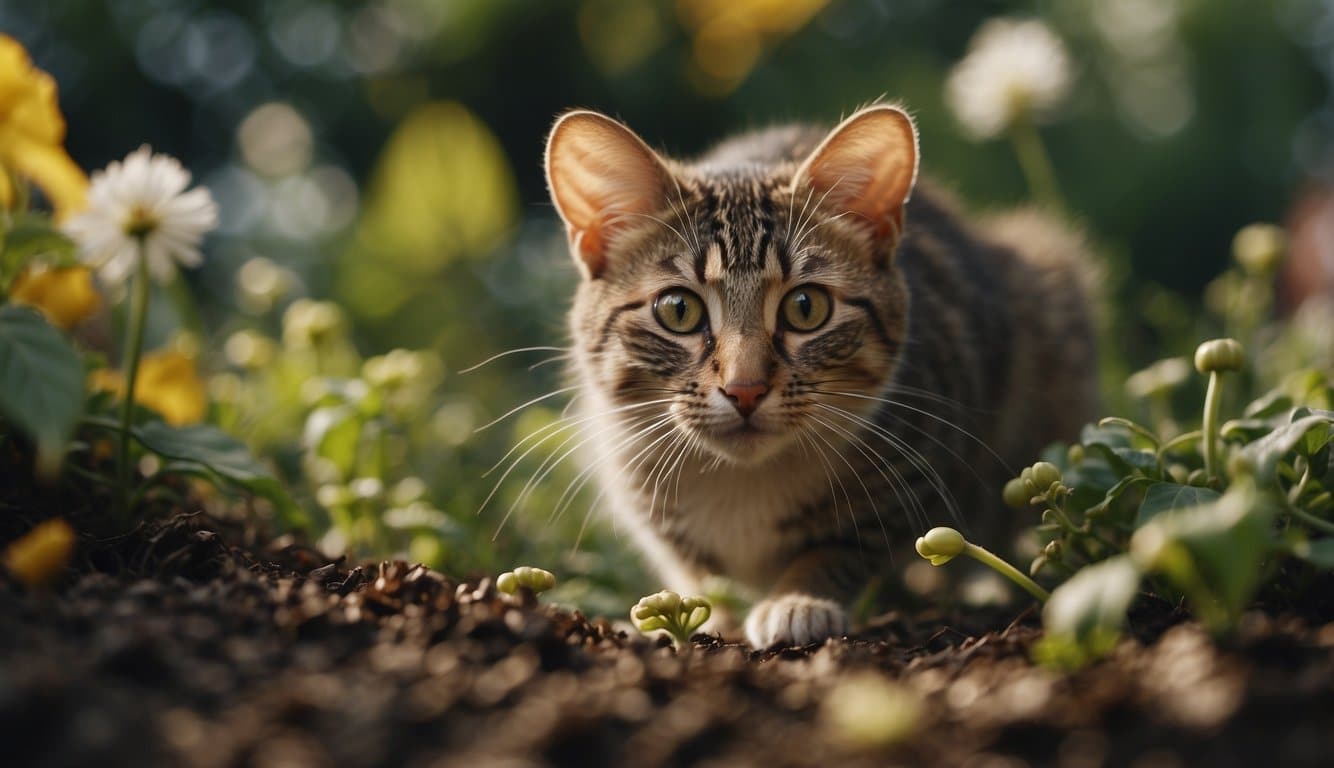Ecological Advantages of Mice in the Yard

Mice might be small, but they’re more than just furry little visitors in your yard. These critters provide several ecological benefits that may surprise you:
- Biodiversity Boosters: Mice contribute to a diverse habitat. By simply going about their daily business, they help maintain a balanced ecosystem right in your backyard.
- Natural Seed Spreaders: As they forage, they inadvertently become champions of plant growth. Mice spread seeds, which can lead to more greenery and a lusher garden.
- Insect Controllers: They have a taste for insects that could otherwise be pests to your plants. A mouse’s dietary choices often include unwelcome bugs, giving your garden a natural pest control service.
- Soil Aeration: Their burrowing habits are nature’s way of aerating the soil. This might not be their intention, but their underground networks create space for air and water to flow, inadvertently nurturing your soil.
Remember, it’s all about balance.
Here’s a tip: maintain your yard to keep it free from excess debris to encourage only the right number of mice, ensuring they’re allies, not adversaries.
For more insights on keeping the balance right, peep at how shelter opportunities impact their presence with the importance of yard debris piles.
Potential Risks Posed by Mice
While mice might look cute scurrying around, they’re not just innocent backyard visitors. The risks they carry can impact your health and garden.
Health Concerns
- Diseases: Mice are carriers of various diseases that can affect you and your family. For example, the white-footed deer mouse is primarily responsible for spreading Hantavirus, a potentially life-threatening disease. Illness can occur through contact with mice droppings, urine, or saliva.
- Allergens: These little creatures can aggravate allergies. Mouse dander is one thing, but their presence can also worsen indoor air quality, as they often find ways into your home.
Garden Damage
- Plant Destruction: Your garden is a buffet for mice. They nibble on plant stems, leaves, and have a voracious appetite for seeds, which can ruin your hard work.
- Burrowing: Mice dig. They create extensive networks underground that can disrupt the root systems of your plants, compromising their stability and nutrient uptake.
Natural Habits of Yard Mice
Mice in your yard can be quite the busy little critters, and knowing what they’re up to can be both fascinating and useful. Here’s the scoop:
- Foraging Fun: These rodents are opportunistic feeders, always on the lookout for seeds, fruits, or anything they can nibble on. If you’ve left some pet food out, they’ll consider it a gala buffet just for them!
- Home Sweet Home: On bouts of creativity, they build their homes using anything soft or cozy they find. Think of materials like leaves, grass, or even your discarded fabric scraps. Just remember, these won’t be 5-star constructions, but they get the job done.
- Social Scene: Believe it or not, mice enjoy a good social life. They communicate through high-pitched sounds and leave scent trails; it’s their way of catching up with the latest gossip.
Here’s a quick list to keep in mind:
- Mice are nocturnal; your yard becomes their playground when the sun sets.
- The little ones are superb climbers; trees and shrubs are their jungle gyms.
- They don’t travel far from home – your yard suffices for their daily adventures.
Don’t forget, they’re also:
- Curious: they’ll explore every nook and cranny they can squeeze into.
- Industrious: constantly gathering nesting materials and food, they’re the workaholics of the rodent world.
Effective Management Strategies
Before inviting the patter of tiny feet into your yard – those of mice, of course – you should be equipped with strategies that ensure a peaceful and beneficial coexistence. Let’s dive into specific, no-fluff methods that you can employ today.
Humane Deterrence Methods
- Peppermint Oil: Mice aren’t fans of minty fragrances. Applying peppermint essential oil around your yard can repel them without harm.
- Block Entry Points: Check for cracks or openings in your home’s foundation and seal them to prevent mice from using your abode as a nesting spot.
Remember, it’s not just about keeping mice at bay; it’s doing so in a way that’s kind to the critters!
Creating a Balanced Ecosystem
- Natural Predators: Encourage the presence of mice predators like owls by setting up an owl box. Your feathered friends will take care of some mice for you.
- Vegetation Management: Trim the overgrowth and remove dense underbrush, thereby eliminating the mice’s hidey-holes.
Coexistence Perspectives
Having mice in your yard can feel like a gray area between nuisance and nature. Here’s the lowdown on why sharing your green space with these tiny critters could be seen in a positive light, and the possible hitches you might encounter.
- Positives
- Ecosystem Helpers: Believe it or not, you’re looking at nature’s little gardeners. Mice disperse seeds and spores, indirectly aiding plant growth.
- Prey Role: They may be small, but their role is mighty! These furry friends serve as food for local predators, keeping the food chain in check.
- Challenges
- Nibblers by Nature: Your vegetable patch is their buffet. Mice can damage young plants and bulbs, leaving you with less to harvest.
- Unwanted House Guests: When it gets chilly outside, these rodents might look for warmth inside your home.
Frequently Asked Questions
Navigating the world of backyard critters is an adventure. Let’s jump into the nitty-gritty about what to watch out for, and what to cheer for, when it comes to mice in your yard.
What unmistakable signs indicate a serious mouse infestation in the yard?
- If you’re spotting numerous mouse holes in your yard or discovering a lot of droppings, you could be dealing with a serious infestation.
- Keep an eye out for gnawed plants or damage to outdoor furniture, as these can also signify that mice are taking over your outdoor space.
Can encountering mice in the yard lead to potential diseases?
- Yes, contact with mice or their droppings can expose you to health risks such as hantavirus and salmonella, which are serious concerns for both humans and pets.
- It’s crucial to practice good hygiene and pest control to minimize these health risks.
How serious is the risk of being bitten by mice while sleeping outdoors?
- The risk of a bite can exist, particularly if you’re sleeping in an area where mice are abundant and you leave food or snacks out that might attract them.
- Bites might lead to infections or disease transmission, so it’s best to keep your sleeping area clean and free of food.
Despite maintaining a clean yard, why might someone still find mice there?
- Mice may be attracted to your yard not just because of food but also due to shelter offered by leaf litter, wood piles, or compost heaps.
- Even with a spotless yard, these areas can offer the perfect hideout for a mouse family.
What are the actual dangers associated with finding mouse droppings near outdoor living spaces?
- Mouse droppings are not just unsightly; they can harbor dangerous pathogens responsible for diseases like hantavirus.
- It’s important to clean up any droppings promptly and safely to mitigate these health risks.
Do mice offer any ecological benefits to yard environments?
- Interestingly, mice can be beneficial for your yard’s ecology by aiding in the dispersal of seeds and providing a food source for local predators. This helps contribute to the balance of your local ecosystem.
- Their burrowing habits can also aerate the soil, which helps plant growth.

